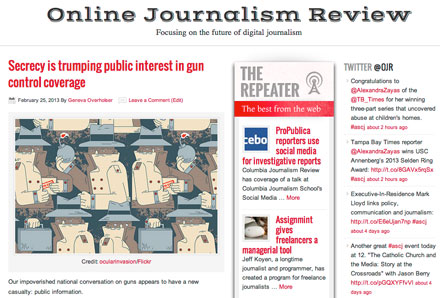
Troll warning sign. (Martorell/Wikimedia Commons)
Jeff Jarvis has a relevant and highly entertaining essay defining trolls, those maniacal critics all journalists know well. Jarvis uses Aaron James’ book Assholes: A Theory as a backboard for his analysis, arguing that trolls are a subset of assholes with a specific edge:
“What distinguishes the troll from the mere asshole is, I believe, that he (1) has a target; (2) seeks to get a response–a rise–out of that target; and (3) believes he is acting out of some ordained moral purpose to destroy, to bring down his target. By contrast, the asshole seeks only to enjoy privilege.”
Wisely, Jarvis recommends that we defeat our own trolls simply by refusing to feed them. Zero response. But he also says that we should seek to improve our modes of discourse by refusing to swarm around troll fights (when someone regretfully feeds them). We should also stick up for those we want to defend from trolls. It’s much better, in Jarvis’ opinion, to defeat another person’s troll than to attempt to defeat your own.










